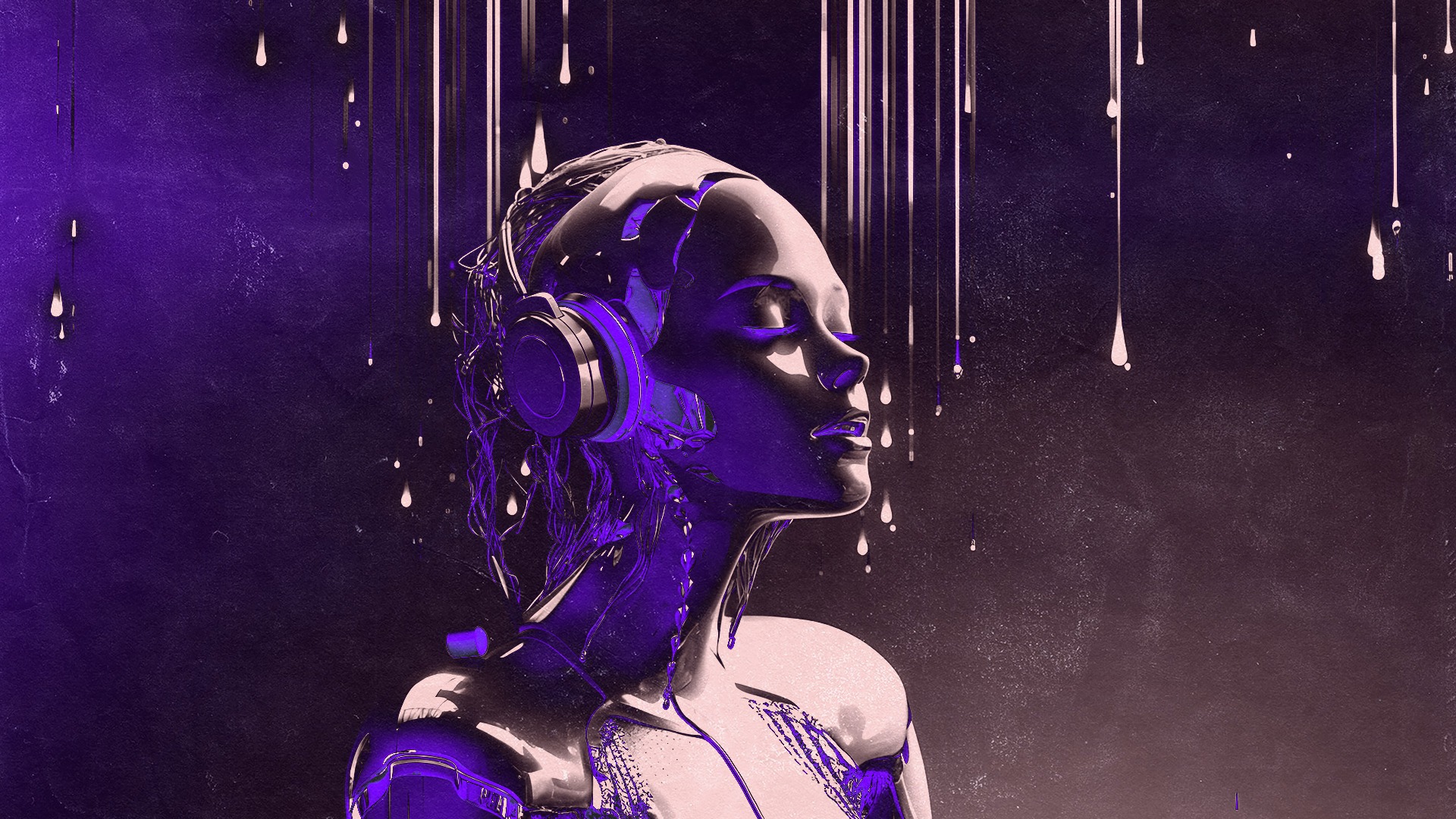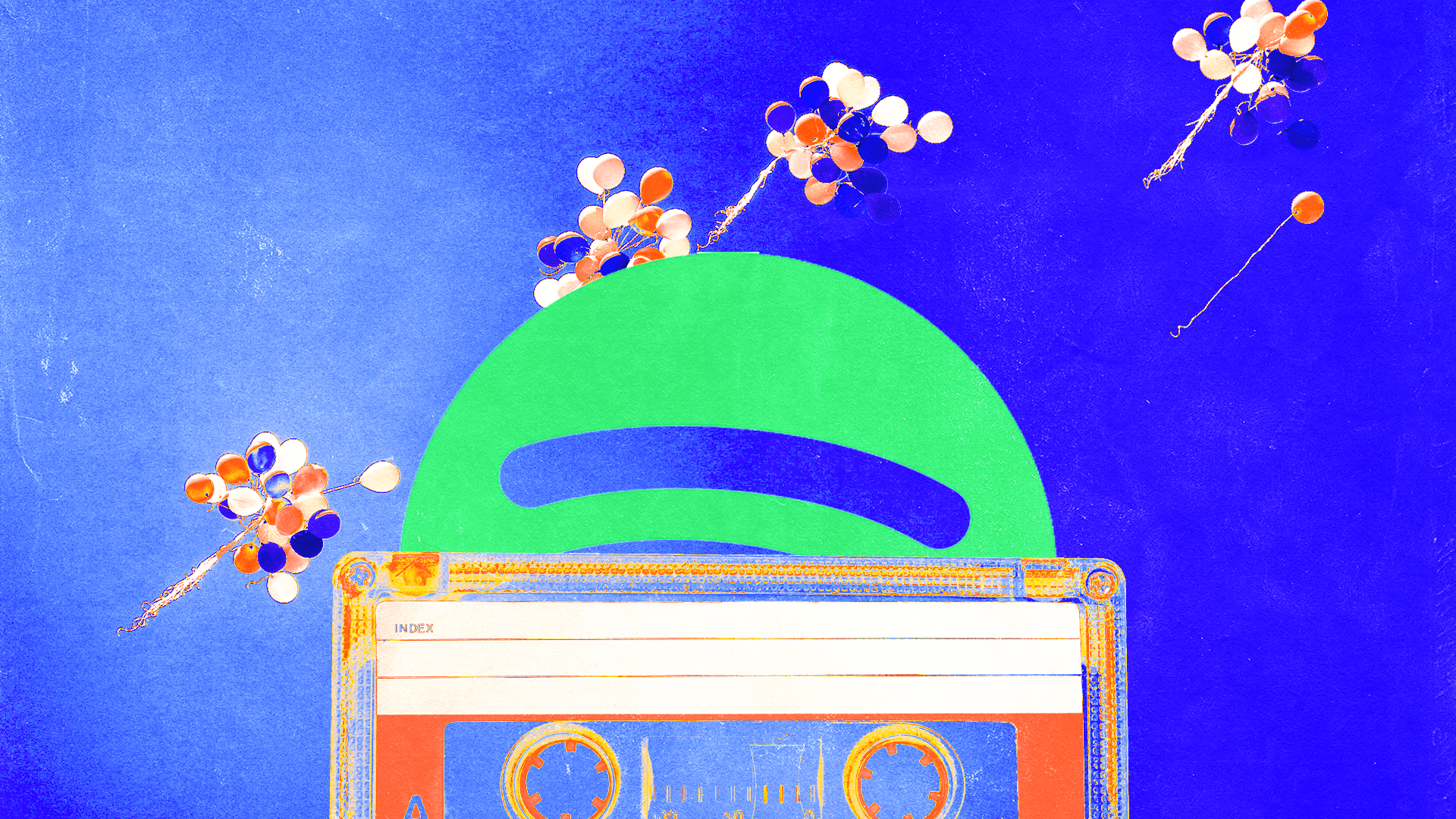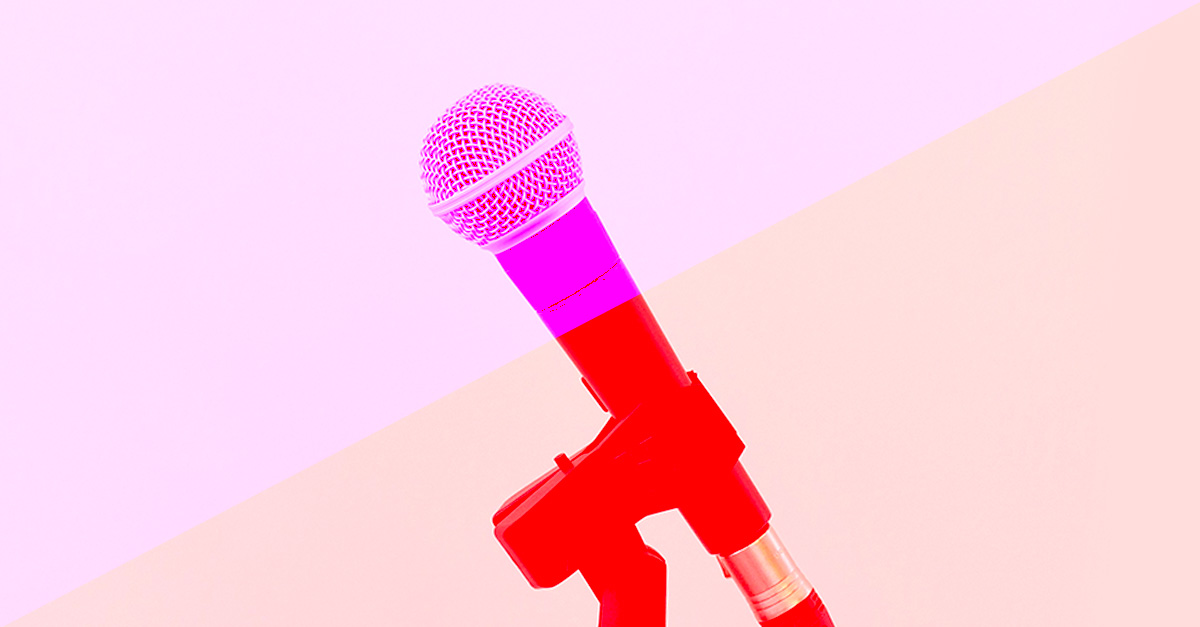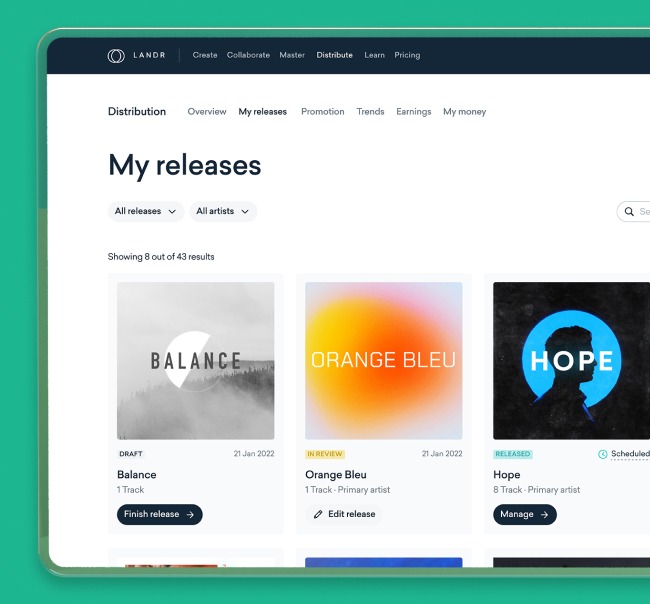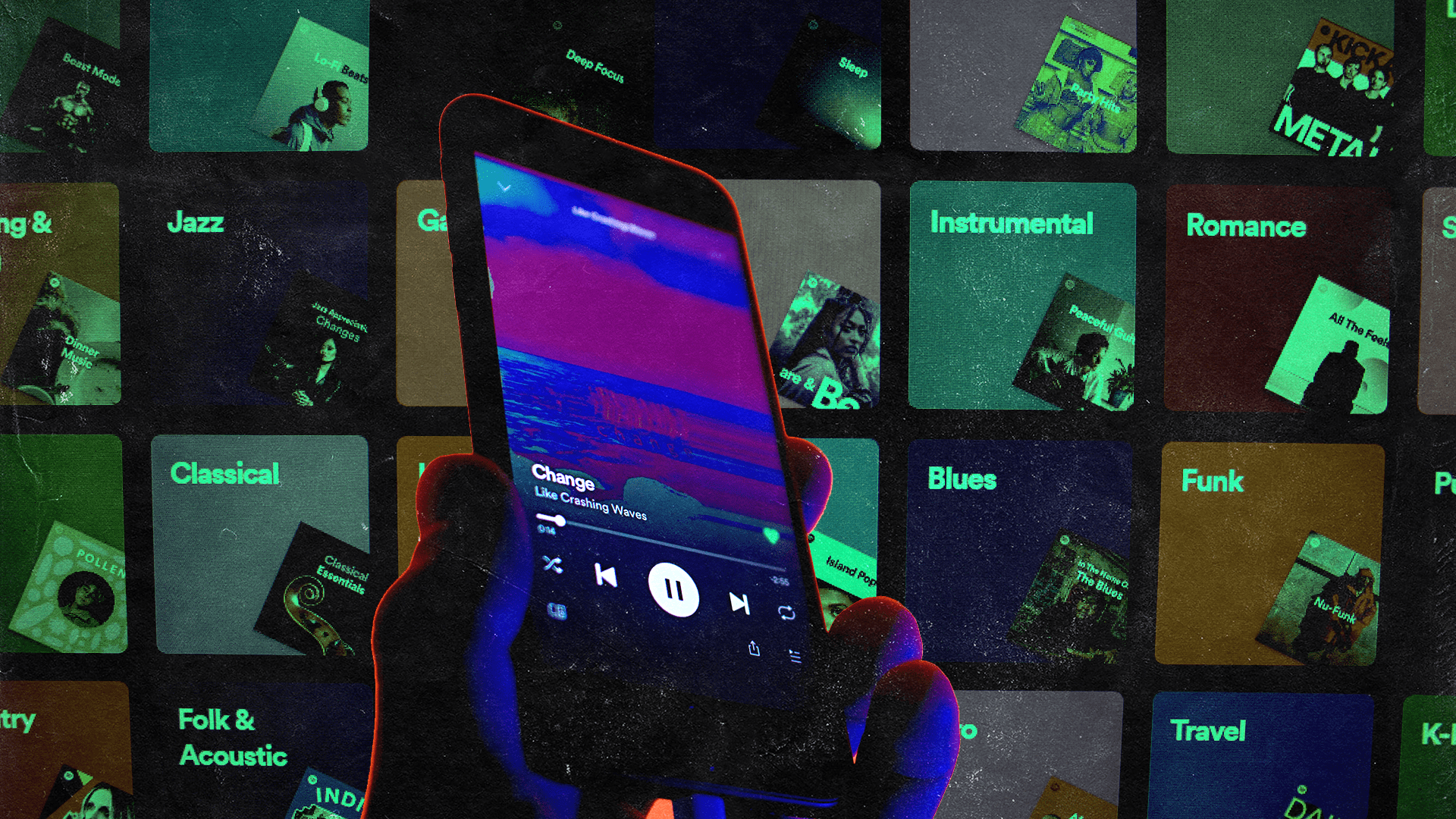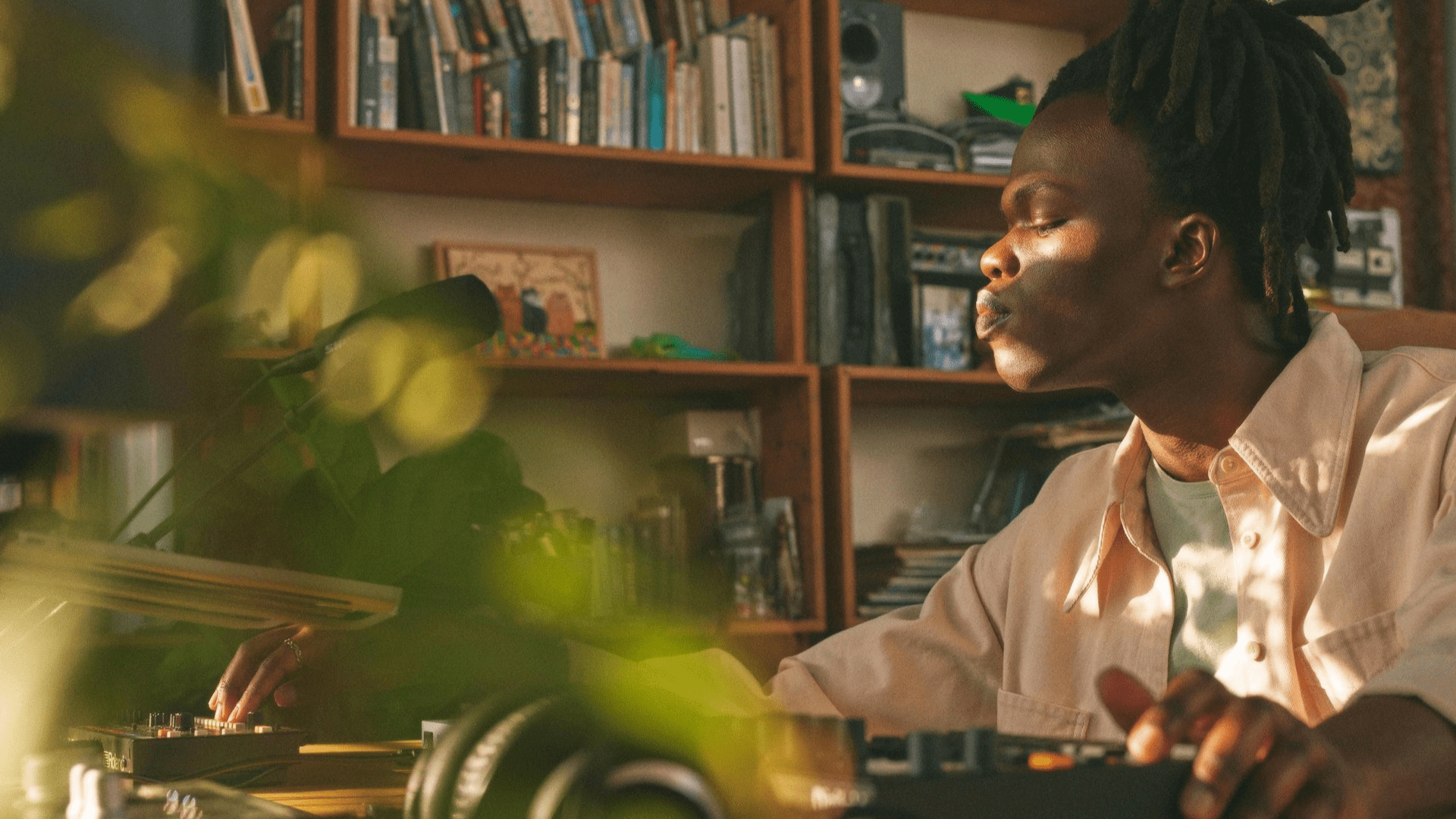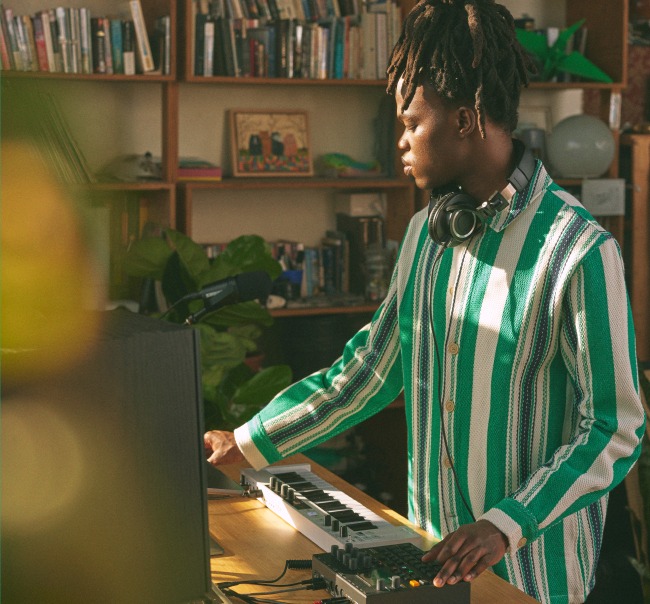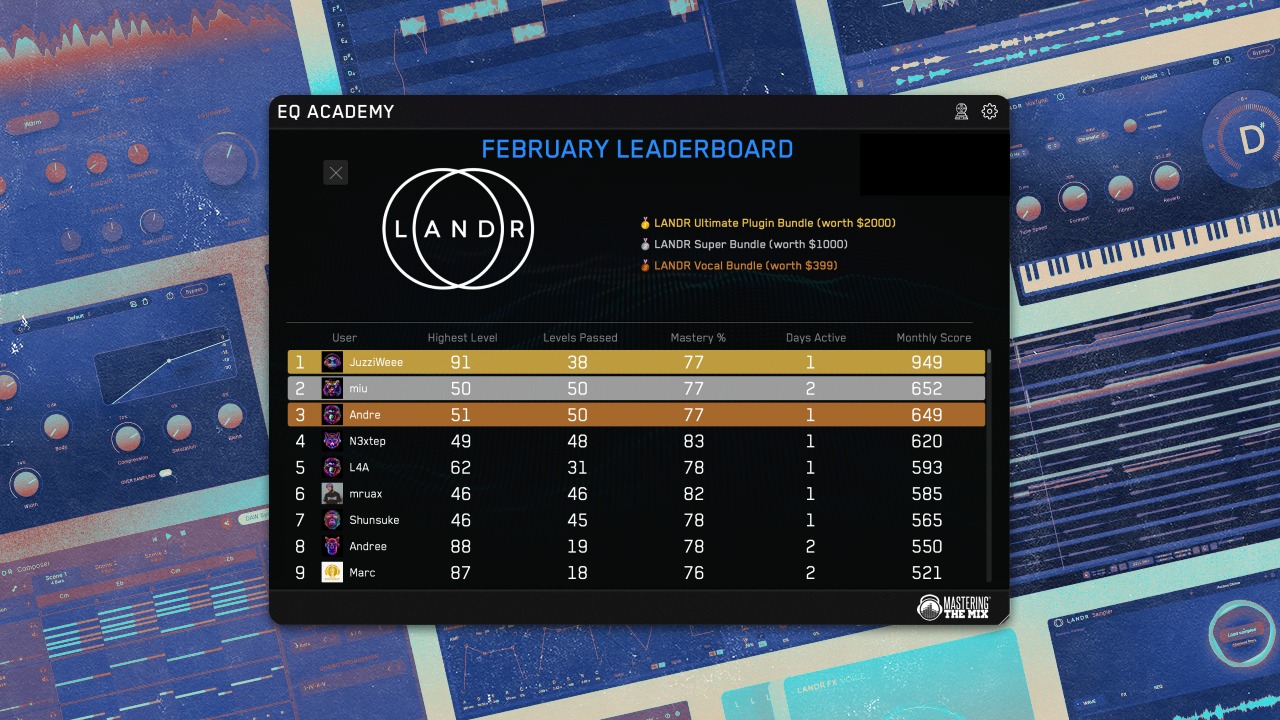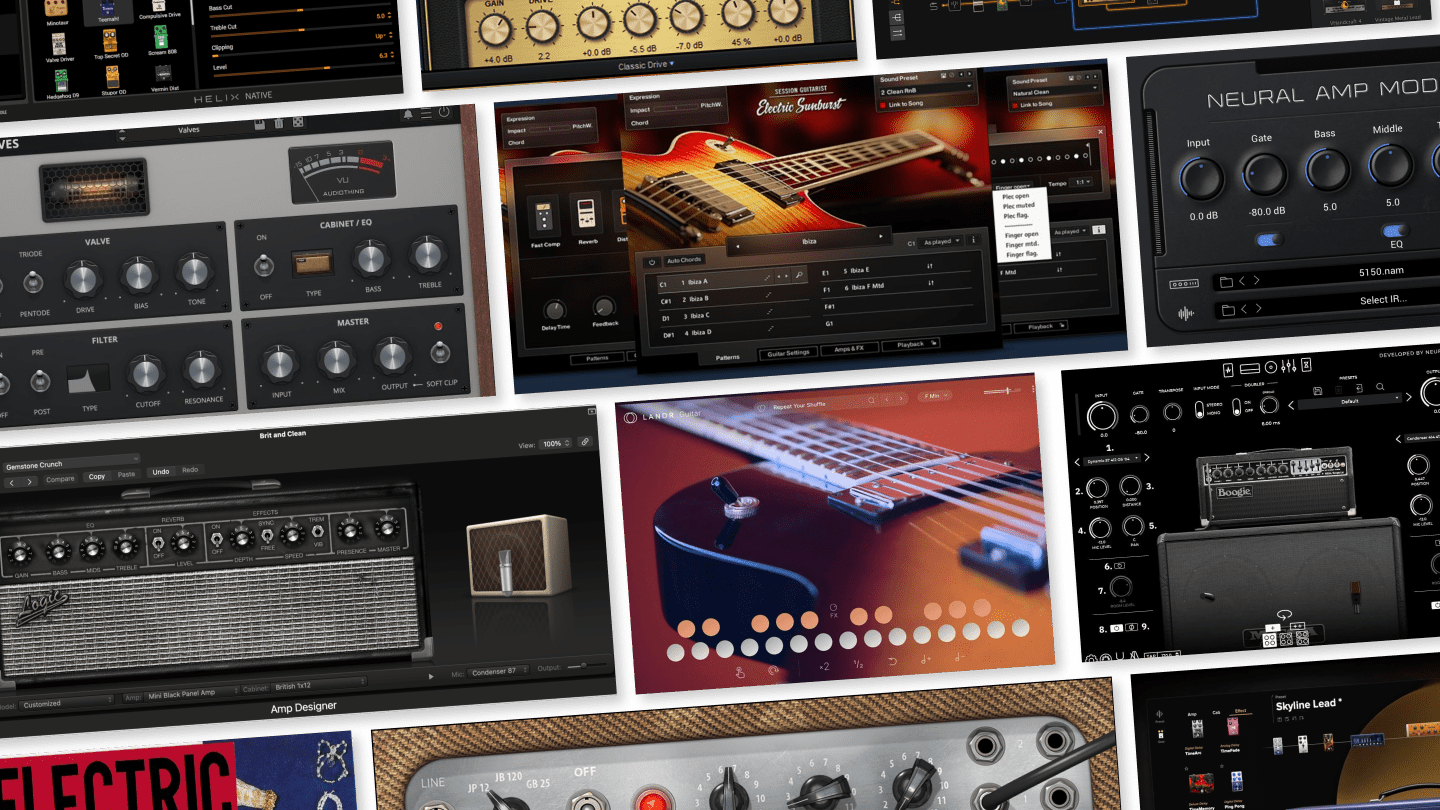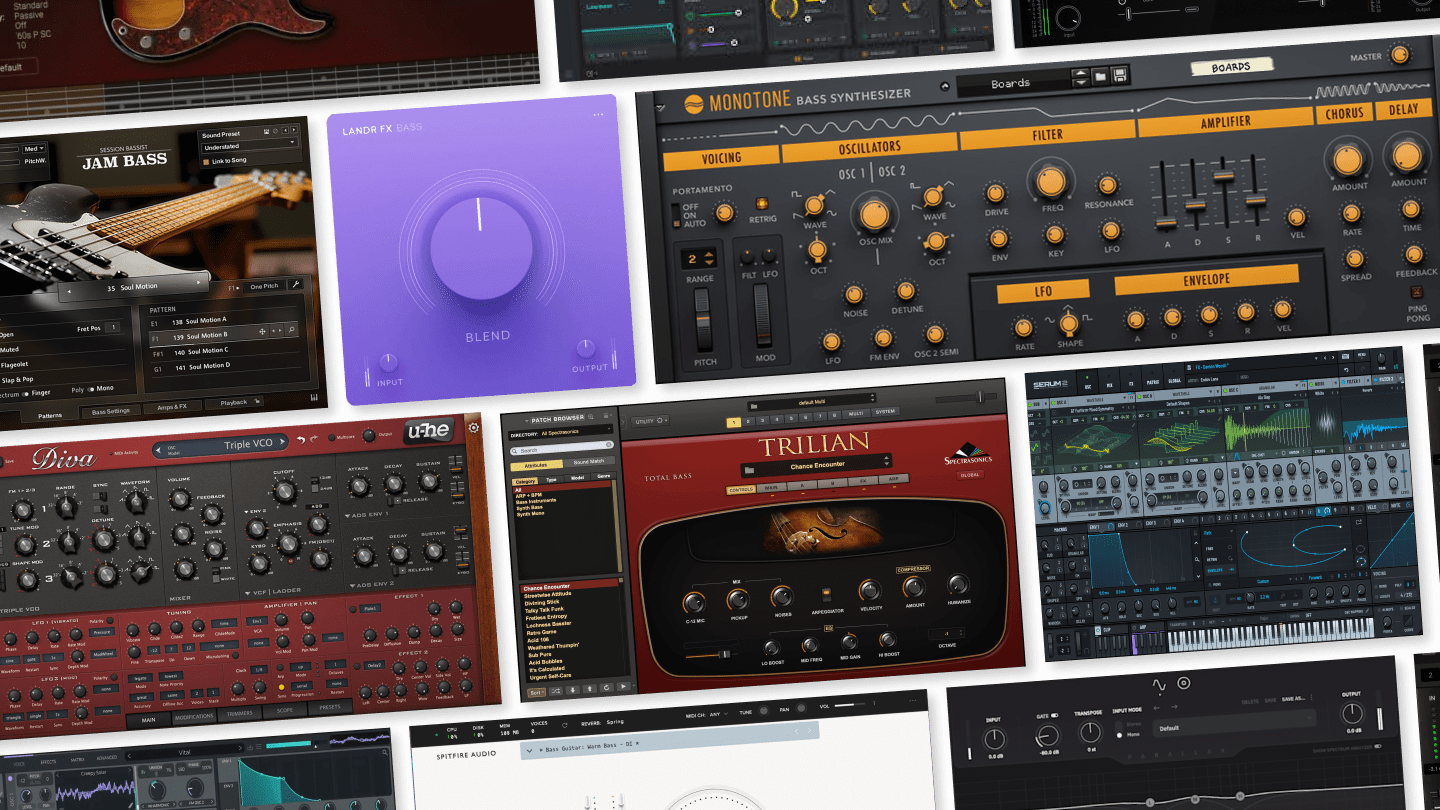
AI Music on Spotify: Everything We Know So Far
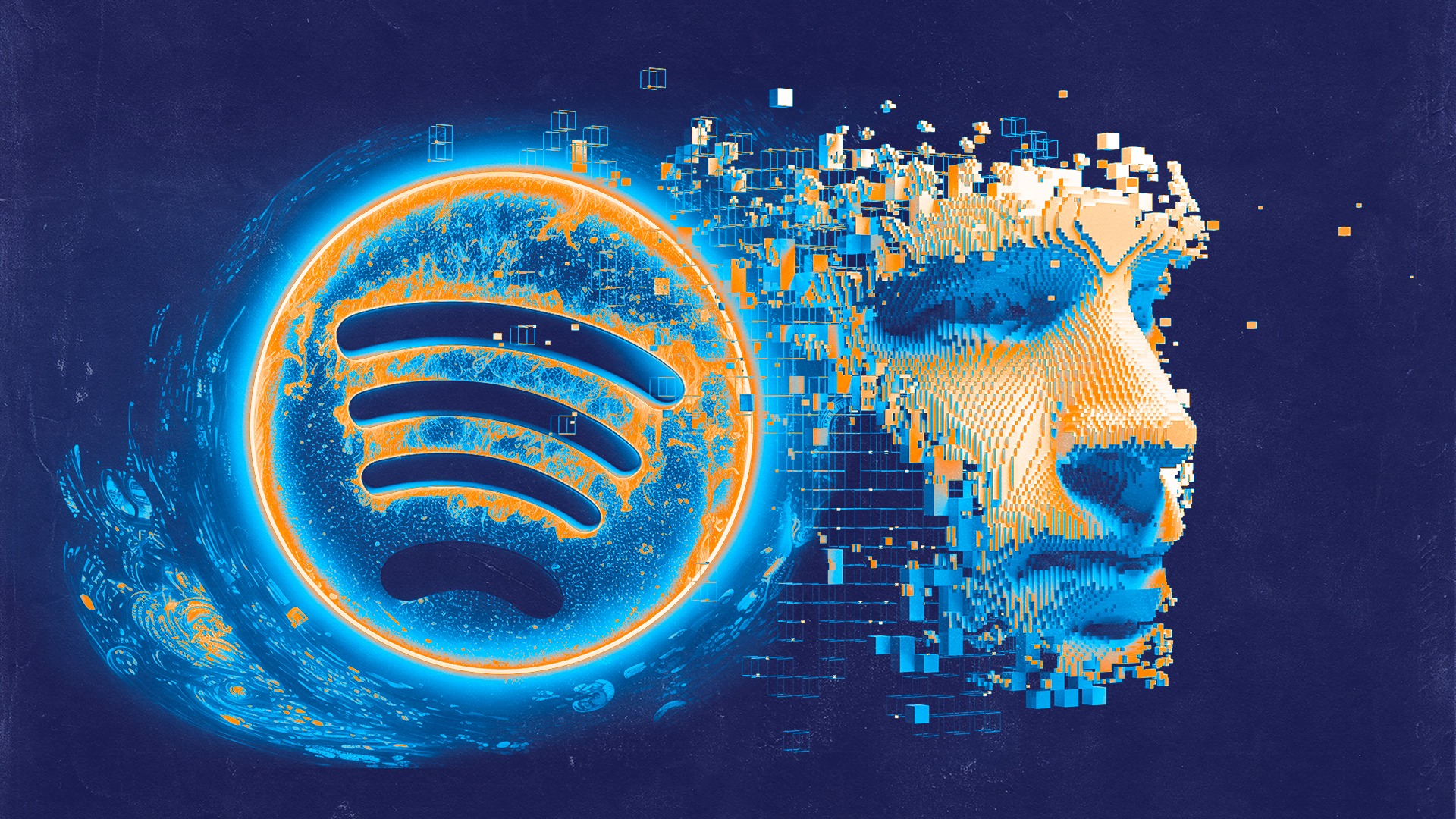
As AI music tools have grown more popular, releasing AI music on Spotify has become an important topic.
If you want to upload AI music to Spotify, you should be aware of the rules involved.
Otherwise, your music could be removed from the platform or your Spotify for Artists account could be terminated.
This brief guide will help you keep your bases covered and make the right decisions. Let’s start with a little context and then get into the details.
This article is for informational purposes only and is not to be taken as legal advice.
Table of Contents
- What is AI-generated music?
- AI-generated music and copyright
- Can I upload AI music to Spotify?
- What about AI-generated music inspired by another artist?
- What about AI-generated cover songs?
- Will AI be trained on my music through Spotify?
- Can I release AI music through LANDR?
- Can I earn money for AI training on my music?
- Staying informed
What is AI-generated music?
AI is used for music production in many different ways, but the term “AI-generated music” often refers to music that has been generated mostly or entirely by machine learning algorithms. Examples of AI song generators include Suno and Udio, which can generate songs based on text prompts written by the user.
AI in music is a broad subject. Machine learning can be used to generate everything from MIDI patterns to individual samples, loops, vocals, and more.
And, of course, AI is the basis of LANDR’s browser-based and plugin-based mastering tools.
But this article will focus specifically on cases where AI has been used to generate major parts of a song — particularly vocals or the entire song altogether.
AI-generated music and copyright
Generative AI music tools need to be trained on human-made music in order to generate convincing results.
Because of this, there’s been a lot of discussion about the ethics and legality of AI-generated music.
If you use AI to generate a song with vocals that mimic the sound of a famous vocalist, can you upload that song to Spotify and other services?
What if your song doesn’t sound like another artist, but the AI was trained on copyright-protected music without the consent of the rights-holders?
Since AI music generators are such a young technology (and are evolving very fast), both lawmakers and the music industry are still figuring out how to deal with questions like these.
Let’s see how this applies to Spotify in particular.
Can I upload AI music to Spotify?
The short answer is yes — as long as you abide by the Spotify for Artists content policy.
Spotify’s CEO Daniel Ek has made it clear that if artists try to release AI-generated music that purposefully impersonates another human artist without legal consent, that music will be in violation of Spotify’s policy.
This could lead to significant legal repercussions for the user.
At the very least, Spotify can take down any material they deem to be in violation of their policy. In cases of repeat infringement, they can ban an artist from the platform altogether.
Other than that, Spotify has not banned AI-generated music in and of itself (or music that uses AI-based production tools), and they don’t intend to.
The important part is that you hold the rights to the music that you upload and you do not impersonate another artist.
When it comes to AI datasets and music copyright, the issue is still very uncertain.
Many developers of generative music AI tools have not yet released information on the datasets they’ve used for training.
Spotify has therefore not yet announced what role the datasets of AI song generators play in their intellectual property policies.
So, if you do create AI-generated songs and release them on Spotify, keep in mind that policies are subject to change depending on new developments.
What about AI-generated music inspired by another artist?
Let’s say that you create an AI-generated song with vocals or sounds that are very similar to a famous artist, but you’re not intentionally impersonating them.
These are the kinds of situations that are dealt with on a case-by-case basis.
Of course, just about every artist is inspired by the sounds and styles of other artists.
But it’s still important to be mindful of how close your material comes to sounding like something that is protected by intellectual property law.
We recommend using the same common sense you would use when making (and commercially releasing) any kind of music, AI-generated or not.
The safest option is to make sure that your AI-generated music expresses new creative ideas and does not contain protected musical material (like melodies or vocal likenesses) that you don’t have consent to use.
What about AI-generated cover songs?
People release cover songs legally all the time on Spotify.
So, wouldn’t that mean that using AI to cover a song and impersonate the original musician is fair game? The answer is no.
This is because releasing a legal cover song is very different from impersonating the artist on streaming platforms, which is against Spotify’s content policy.
Let’s say, on the other hand, you create a cover song that uses AI-based production tools but does not impersonate the original artist.
You can release it on Spotify as long as you follow the usual legal route for releasing a cover song.
Will AI be trained on my music through Spotify?
Even if you don’t make AI music, you still might be curious about how AI affects you as an artist on Spotify.
For example, has Spotify given permission for music AI developers to train their algorithms on their platform’s content?
The answer to this is clear — no.
Ek has stated that the company does not intend to use artists’ music for the training of AI technology.
Spotify has trained AI on the voices of some Spotify-exclusive podcast hosts, like Dax Shepard and Lex Fridman, with their permission and collaboration.
This is done to create AI voice generation models that allow a podcast to be translated into other languages while retaining the characteristics of the podcaster’s voice.
Can I release AI music through LANDR?
Of course, music has to be released on Spotify through a distributor, so what about the distributor’s policy?
Let’s take LANDR Distribution as an example.
In May of 2024, LANDR’s founder and CEO Pascal Pilon posted on Medium to share the company’s stance on AI-generated music.
We highly recommend reading it to learn the details, but the good news for creators of AI-generated music is that LANDR has not banned it from LANDR Distribution.
Artists simply need to, as always, follow LANDR’s Terms of Service to ensure that the music they release is aligned with our policies and respects copyright.
Additionally, artists should keep in mind that many aspects of AI-generated music are still up in the air and changing constantly.
So it’s important to stay up-to-date on any developments to both the status of AI song generators and LANDR’s content policies.
Ultimately, we believe that AI works best for musicians when it’s used to assist and empower the creative process rather than replace it.
And it’s always our highest priority to do everything we can to ensure that the intellectual property rights of all artists and music rights-holders are respected.
Can I earn money for AI training on my music?
In July of 2024, LANDR announced our Fair Trade AI program, which allows artists to do exactly this if they choose.
By opting into this program, artists using LANDR Distribution can give permission for the use of their music in the training of LANDR’s intelligent assistive music production tools.
In exchange for this, artists get a monthly cut of revenue from those tools.
While this kind of program is pretty unprecedented, it’s actually similar to earning royalties from your music via distribution.
And, of course, it’s a great way to help make the LANDR tools you use more powerful and higher in quality.
We recommend checking out the main page for the Fair Trade AI program here if you’re interested.
Staying informed
When it comes to copyright and AI, there are plenty of tricky questions and developing circumstances to consider.
Laws and policies can always change, and if AI has taught us anything so far, it’s to expect the unexpected.
But as a major player in the field of AI music tech, we feel it’s important to help artists stay on top of these changes at all times.
We’ll be working hard to make sure that you have a dependable source of info and clarification as things develop, so be sure to check in with our blog for more updates!
Gear guides, tips, tutorials, inspiration and more—delivered weekly.
Keep up with the LANDR Blog.
